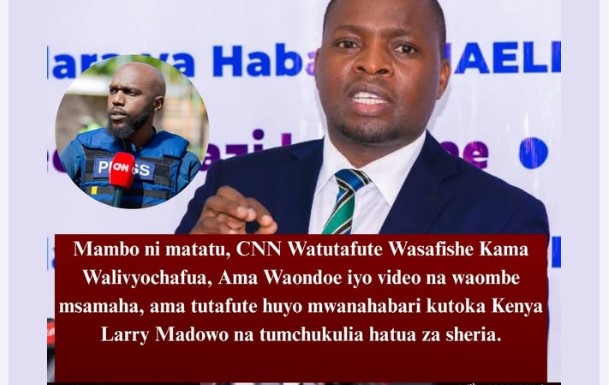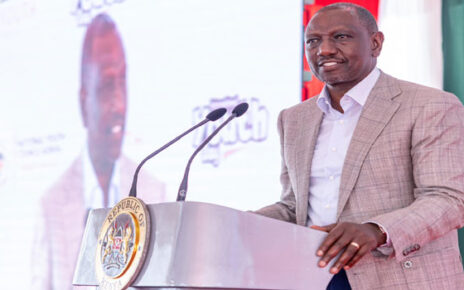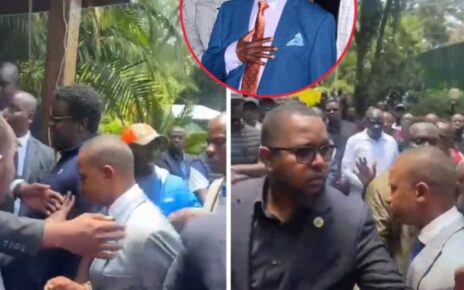Tanzania has entered the regional spotlight after Government Spokesperson Gerson Msigwa issued a strongly worded statement aimed at global broadcaster CNN. The remarks followed a report by the international network that Tanzanian authorities say misrepresented the country and painted an inaccurate picture of local affairs.
Msigwa, addressing journalists, made it clear that Tanzania would not tolerate what he described as “careless and damaging journalism” from powerful international media houses. His message was firm, and his demands were laid out in what he called three non-negotiable options.
According to Msigwa, CNN must do one of the following:
- Engage Tanzanian authorities directly and correct the misleading information,
- Pull down the video entirely and issue a formal public apology, or
- Prepare for legal consequences, which may also involve action against the journalist behind the report—Kenyan correspondent Larry Madowo.
Msigwa argued that the report had not only harmed Tanzania’s image but also violated journalistic ethics by failing to verify facts with relevant government offices. In his view, the broadcast amounted to a deliberate distortion that unfairly portrayed the nation on the global stage.
The spokesperson’s comments have stirred conversation across East Africa. Supporters of the government insist that international media must be held accountable, especially when their narratives can influence foreign investors, diplomatic relations, and the country’s overall reputation. They argue that Africa has, for years, suffered from biased coverage that reinforces negative stereotypes.
On the other hand, critics caution that governments must balance media accountability with freedom of expression. They warn that threats of legal action against journalists could be interpreted as attempts to intimidate the press, both local and international.
The situation has placed CNN under pressure to clarify its position and decide whether it will amend the disputed report. Meanwhile, Larry Madowo’s mention in the controversy has triggered significant online debate, with many Kenyans and Tanzanians paying close attention to how the story unfolds.
As the standoff continues, one thing is clear: Tanzania is determined to defend its national image firmly and publicly. The incident has once again highlighted the complex relationship between African governments and international media outlets, raising important questions about fairness, accuracy, and the responsibility that comes with global journalism.
Whether CNN will respond to the ultimatum remains to be seen, but the outcome is likely to shape discussions about media accountability and international reporting for some time.



